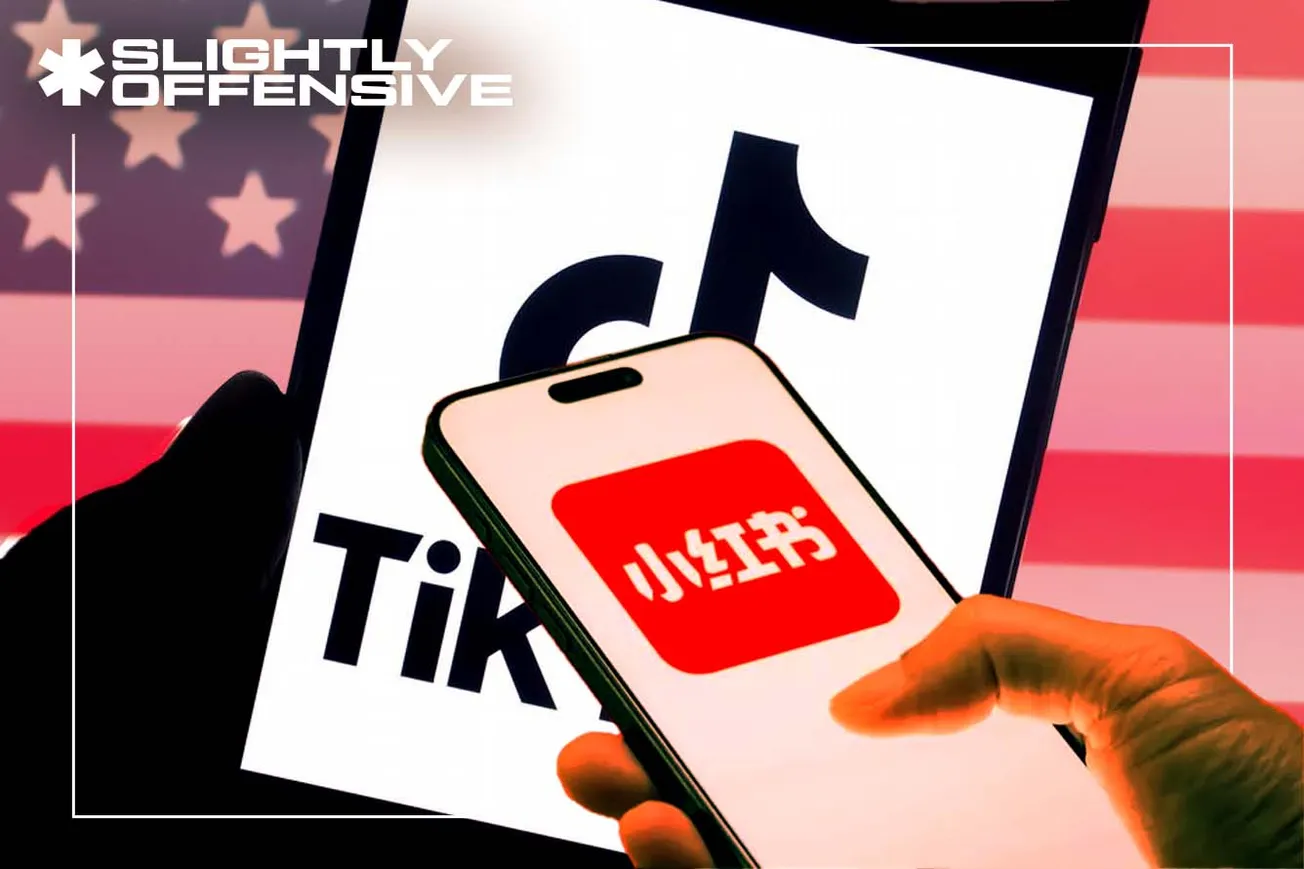As TikTok users grapple with the impending U.S. ban on the app, many have sought refuge in the latest trending alternative: RedNote (also known as Xiaohongshu).
On the surface, this shift appears to be a bold act of defiance, with users thumbing their noses at government intervention. But beneath the viral dance trends and cinnamon-roll selfies lies a deeper question: are these users escaping the frying pan only to leap straight into the fire?
The Privacy Problem
TikTok’s precarious position in the U.S. stems largely from concerns about its Chinese ownership and the potential for user data to be accessed by the Chinese Communist Party. Ironically, RedNote, the chosen alternative, is also a Chinese-owned app—raising similar, if not more severe, privacy concerns. For users who migrated to RedNote seeking freedom from surveillance, this move might represent a lateral, if not downward, shift in privacy safeguards.
While TikTok has repeatedly denied sharing data with Beijing, its transparency measures have been scrutinized extensively. In contrast, RedNote, owned by the company Xiaohongshu, operates under the same Chinese internet regulations, which mandate that user data be accessible to the government upon request. This raises critical questions about whether users are trading one set of risks for another, potentially more opaque, alternative.
Liberals are flocking to RedNote, an app controlled by China, to replace TikTok.
— End Wokeness (@EndWokeness) January 14, 2025
Turns out, they ban LGBTQ content, all inappropriate outfits, & only 2 genders. pic.twitter.com/33qOGQNUV1
The Data Landscape: From Familiar to Unknown
Unlike TikTok, which has built extensive operations in the U.S. and engages with international privacy watchdogs, RedNote’s infrastructure remains relatively unknown to its new Western audience. The platform primarily caters to Chinese users, blending short-form video content with features akin to Yelp and Google. This hybrid design might appeal to novelty seekers, but it also means users are entering a space built for a different audience, governed by unfamiliar rules and data practices.
Adding to the complexity is RedNote’s user verification process, which has already tripped up many American newcomers. The platform’s use of international phone numbers for account verification has led to widespread account suspensions, ostensibly as a safeguard against bots. This technical hiccup also signals a lack of preparedness for a sudden influx of Western users—leaving many questioning how securely their data is handled in a system built for a predominantly Chinese user base.
A False Sense of Security
For many, the switch to RedNote feels like a rebellious middle finger to the U.S. government, but it may inadvertently serve as an embrace of the same risks that spurred the TikTok ban in the first place. American users, accustomed to certain levels of transparency and privacy regulation, may find themselves vulnerable in a system where those safeguards are absent or difficult to discern.
Worse still, RedNote’s Community Guidelines and Terms of Service are written primarily in Mandarin, making it challenging for English-speaking users to understand what they’re agreeing to. For those who have navigated the settings menu to change the app’s language, the guidelines remain riddled with ambiguities and loopholes that further obscure users' rights.
A Broader Implication: The Illusion of Choice
The migration from TikTok to RedNote highlights a troubling reality: users fleeing perceived surveillance risks on one platform may inadvertently walk into equally—or more—dangerous territory on another. In the broader landscape of social media, where geopolitics and technology intersect, this serves as a cautionary tale about the illusion of choice.
By moving en masse to another Chinese-owned platform, users are not necessarily escaping data exploitation; they’re simply shifting it. RedNote’s sudden surge in popularity underscores how little the average social media user understands about the platforms they trust with their information. Without proper safeguards, this digital rebellion could have real-world consequences, not just for individual users, but for data privacy as a whole.
Conclusion: Privacy in the Digital Age
The TikTok-to-RedNote migration isn’t just a story about apps and algorithms; it’s a glimpse into the complex web of privacy, geopolitics, and user behavior in the digital age. While users may feel like they’re making a statement by jumping from one platform to another, the reality is far murkier.
For now, one thing is clear: social media users must tread carefully in this shifting landscape. The stakes are no longer just about convenience or entertainment; they’re about who controls the vast troves of data that define our digital lives. And in the race to find the next viral platform, it’s worth pausing to ask: is the risk worth the leap?
Please leave your opinions / comments on these stories below, we appreciate your perspective!



![Jeremy Renner Opens Up About His Near-Fatal Accident and Incredible Recovery on Joe Rogan [WATCH]](/content/images/size/w1304/format/webp/2025/04/joe-rogan-jeremy-renner.jpg)



Conversation